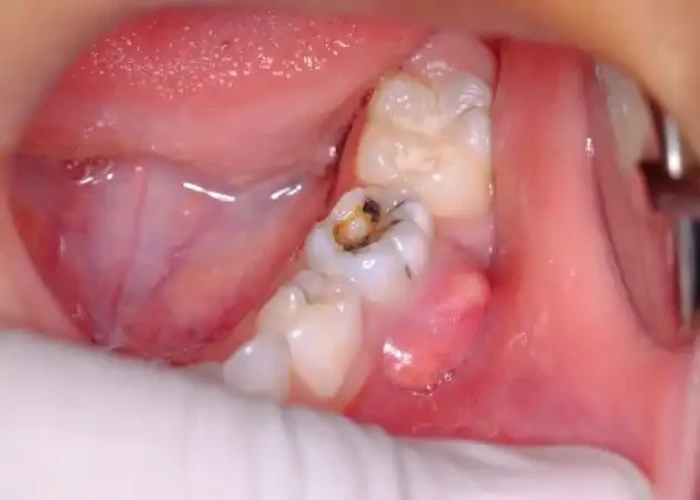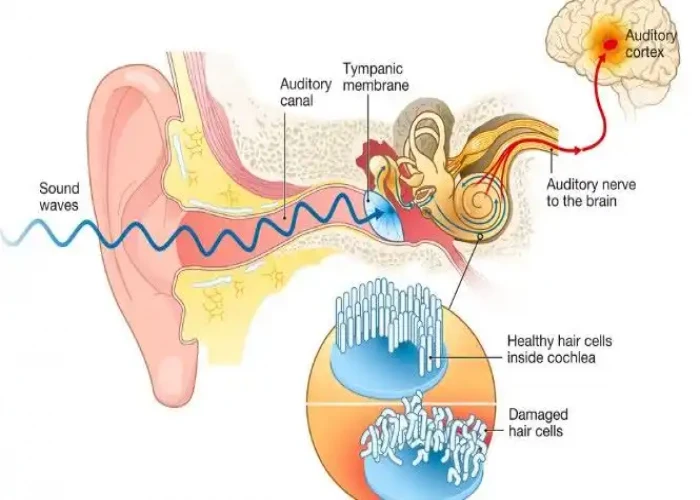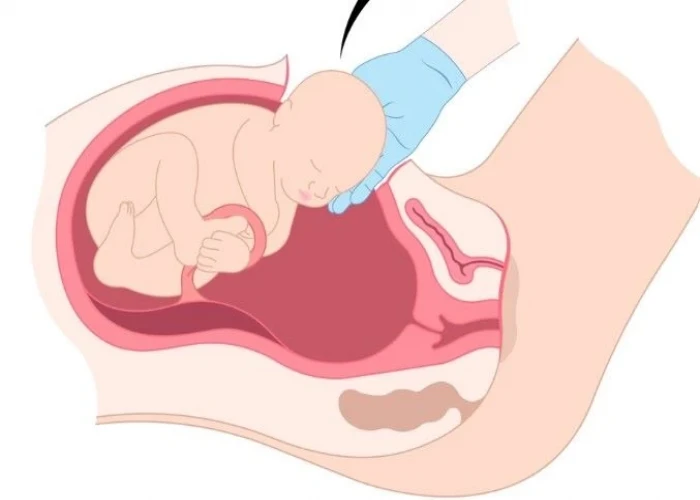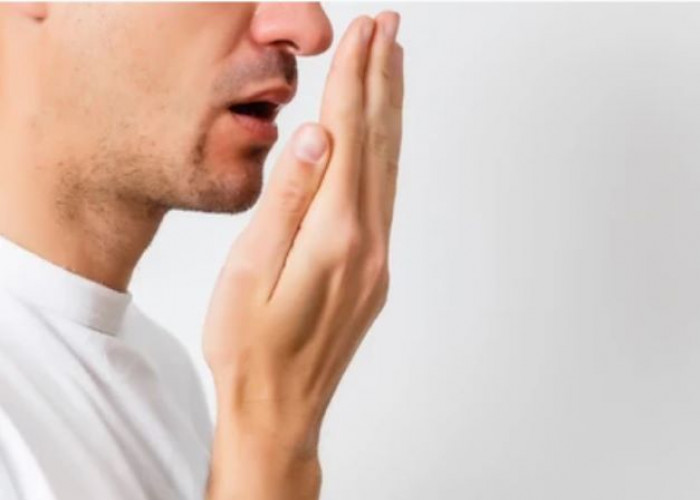 Welcome
Welcome
“May all be happy, may all be healed, may all be at peace and may no one ever suffer."
Bad breath

Bad breath, also known as halitosis, can be caused by a variety of factors, including poor oral hygiene, gum disease, certain foods, dry mouth, and smoking. Drinking plenty of water, practicing good oral hygiene habits, avoiding foods that can cause bad breath, and quitting smoking can help improve breath odor. If bad breath persists, it may be a sign of an underlying medical condition, and it is important to consult a healthcare provider.
Research Papers
Disease Signs and Symptoms
- Bad breath (halitosis)
Disease Causes
Bad breath
Most bad breath starts in your mouth, and there are many possible causes. They include:
- Food. The breakdown of food particles in and around your teeth can increase bacteria and cause a foul odor. Eating certain foods, such as onions, garlic and spices, also can cause bad breath. After you digest these foods, they enter your bloodstream, are carried to your lungs and affect your breath.
- Tobacco products. Smoking causes its own unpleasant mouth odor. Smokers and oral tobacco users are also more likely to have gum disease, another source of bad breath.
- Poor dental hygiene. If you don't brush and floss daily, food particles remain in your mouth, causing bad breath. A colorless, sticky film of bacteria (plaque) forms on your teeth. If not brushed away, plaque can irritate your gums and eventually form plaque-filled pockets between your teeth and gums (periodontitis). Your tongue also can trap bacteria that produce odors. Dentures that aren't cleaned regularly or don't fit properly can harbor odor-causing bacteria and food particles.
- Dry mouth. Saliva helps cleanse your mouth, removing particles that cause bad odors. A condition called dry mouth or xerostomia (zeer–o-STOE-me-uh) can contribute to bad breath because production of saliva is decreased. Dry mouth naturally occurs during sleep, leading to "morning breath," and it worsens if you sleep with your mouth open. Chronic dry mouth can be caused by a problem with your salivary glands and some diseases.
- Medications. Some medications can indirectly produce bad breath by contributing to dry mouth. Others can be broken down in the body to release chemicals that can be carried on your breath.
- Infections in your mouth. Bad breath can be caused by surgical wounds after oral surgery, such as tooth removal, or as a result of tooth decay, gum disease or mouth sores.
- Other mouth, nose and throat conditions. Bad breath can occasionally stem from small stones that form in the tonsils and are covered with bacteria that produce odor. Infections or chronic inflammation in the nose, sinuses or throat, which can contribute to postnasal drip, also can cause bad breath.
- Other causes. Diseases, such as some cancers, and conditions such as metabolic disorders, can cause a distinctive breath odor as a result of chemicals they produce. Chronic reflux of stomach acids (gastroesophageal reflux disease, or GERD) can be associated with bad breath. Bad breath in young children can be caused by a foreign body, such as a piece of food, lodged in a nostril.
Disease Prevents
Disease Treatments
To reduce bad breath, help avoid cavities and lower your risk of gum disease, consistently practice good oral hygiene. Further treatment for bad breath can vary, depending on the cause. If your bad breath is thought to be caused by an underlying health condition, your dentist will likely refer you to your primary care provider.
For causes related to oral health, your dentist will work with you to help you better control that condition. Dental measures may include:
- Mouth rinses and toothpastes. If your bad breath is due to a buildup of bacteria (plaque) on your teeth, your dentist may recommend a mouth rinse that kills the bacteria. Your dentist may also recommend a toothpaste that contains an antibacterial agent to kill the bacteria that cause plaque buildup.
- Treatment of dental disease. If you have gum disease, you may be referred to a gum specialist (periodontist). Gum disease can cause gums to pull away from your teeth, leaving deep pockets that fill with odor-causing bacteria. Sometimes only professional cleaning removes these bacteria. Your dentist might also recommend replacing faulty tooth restorations, a breeding ground for bacteria.
Disease Diagnoses
Disease Allopathic Generics
Disease Ayurvedic Generics
Disease Homeopathic Generics
-
Arnica montana
When the cause of bad breath is not precisely known. 6 strength, 2 drops 4 times a day with a little water.
-
Nitric acid
6 strength, 2 drops 4 times a day with a little water.
-
Carbo vegetabilis
200 energy. 3/4 drop with little water three times a day.
-
Aurum metalicum
3/4 drops 3/4 times a day with a little water if there is putrid odor.
-
Nux vomica
Bad breath always comes on, very much after meals or in the morning then 6 strength, 2/3 drops 4 times a day with a little water.
-
Podophyllum peltatum
Urinary symptoms including foul odor, tongue coated with dirt and constipation are doshas. Q 2/3 drop with little water 3 times a day.
-
Mercurius solubilis
Sore gums, pus from the gums. 6 strength, with a little water 4 times a day.
-
Hepar sulphur
If there is no benefit from using Carbo vage, it should be used. 3 strength, two drops 4 times a day.
-
Silicea
Bad breath with profuse perspiration. 30 strength, 3 drops four times a day.
-
Sulphur
If the disease is of long standing then 6 strength, 3 drops four times a day.
-
Pyrogenium
It smells like rotting meat but it is necessary. 30 strength equal to 2/3 drop with water 4 times a day.
-
Carbo vegetabilis
3X powder, mix 3/4 grain with one ounce of water and take one spoon every 30 minutes. Children take 2/3 grain and half a spoonful.
-
Nux vomica
30 strength, 3/4 drops, 15/20 minute intervals.
-
Lycopodium clavatum
6, 30 strength. Take 4/5 drops with little water every 10-15 minutes.
-
Carbolicum acidum
6, 2/3 drop every hour with a little water.
-
Argentum nitricum
6, 30 strength. 2/3 drop every hour with little water. Children 2 drops with half a spoonful of water.
-
Terebinthina
30 3/4 drops with little water every 30 minutes.
Disease yoga
Bad breath and Learn More about Diseases

Thoracic outlet syndrome

Tooth abscess

Vasculitis

Tinnitus

Incompetent cervix

Enlarged liver

Postpartum preeclampsia

Atrophy of Stomach
Bad breath, Halitosis, Bad breath treatment, নিঃশ্বাসে দুর্গন্ধ
To be happy, beautiful, healthy, wealthy, hale and long-lived stay with DM3S.
